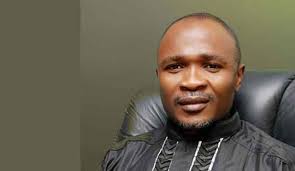As Nigeria marks 25 years of uninterrupted democracy, Rep. Kingsley Chinda, the Minority Leader of the House of Representatives, emphasized that despite notable failures, democracy remains the best form of governance. He cautioned against considering autocracy as an alternative, labeling it as a dangerous and retrogressive option.
Chinda, who represents the Obio/Akpor Federal Constituency of Rivers State, spoke to journalists on Tuesday, stating:
“While some may argue that there is nothing to celebrate about democracy in Nigeria, I firmly believe that even the worst democratic government is better than the best autocratic government. Democracy allows us the freedom to converse openly, something that would be impossible under autocratic rule.”
Reflecting on his past, Chinda highlighted his opposition to military rule in Nigeria, even enduring detention during his student days for protesting against it. He stressed the importance of democracy in ensuring freedoms that would be curtailed under autocracy.
“Democracy comes with its advantages. We can speak freely today because of it. In contrast, during autocratic rule, even holding this interview would have been risky. Democracy has allowed us 25 years of such freedoms, which is indeed a milestone,” he remarked.
However, Chinda raised critical questions about Nigeria’s progress in the past quarter-century of democratic rule. He pointed out significant shortcomings, particularly in the government’s primary responsibilities: security and welfare of its citizens.
“In terms of security, we are worse off today than 25 years ago. Traveling from Port Harcourt to Sokoto at night was once common. Today, even daytime travel from Port Harcourt to Abuja is considered risky. The government’s failure to ensure security is glaring,” Chinda observed.
He also lamented the decline in public welfare, noting that basic services like public water supply, education, and healthcare have deteriorated. “Nigerians now provide their own security, power, and education due to the government’s failures. Public services have collapsed, leading to widespread dissatisfaction.”
Chinda warned that if these issues are not addressed, Nigeria risks disintegration. “The signs of a failed state are apparent. We must take corrective actions to prevent the center from collapsing.”
Chinda detailed the efforts of the opposition in addressing these challenges. Recently, opposition members set a three-month deadline, expiring on July 16, for the government to improve security or face intensified actions.
“We have also intervened in issues affecting citizens’ welfare, such as the controversial Central Bank circular on fees, which was subsequently withdrawn. Our legislative interventions aim to check government excesses and protect Nigerian interests,” he explained.
Highlighting successes, Chinda pointed to the Local Content Act in the oil and gas sector, which has empowered Nigerians in the industry. He advocated for extending this framework to other sectors like construction, healthcare, and ICT to develop local capacity and create job opportunities.
“Extending local content requirements to various sectors will not only enhance local capacity but also ensure employment for locals, thereby reducing unemployment. Training provisions within these laws will further prepare our workforce for future challenges,” he concluded.
Chinda’s reflections underscore the mixed legacy of Nigeria’s 25 years of democracy, celebrating its freedoms while calling for urgent reforms to address its shortcomings and avert potential crises.
Do you have news for us? Or feedback? Reach us at info@theplenary.com.ng

